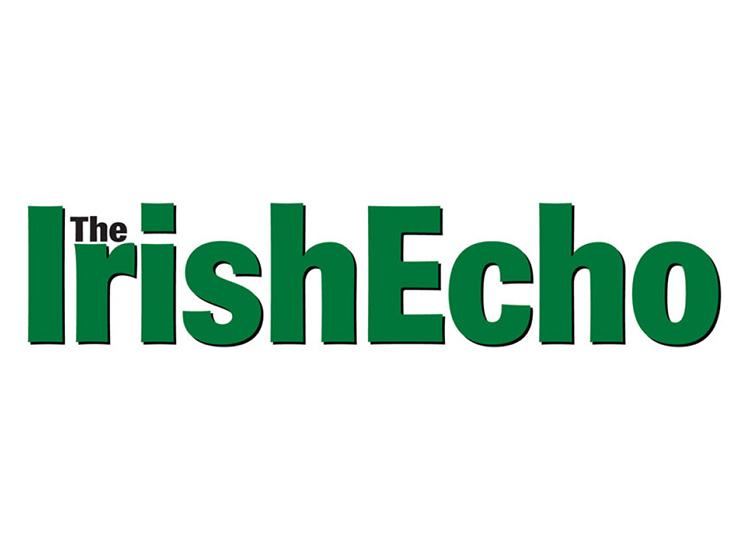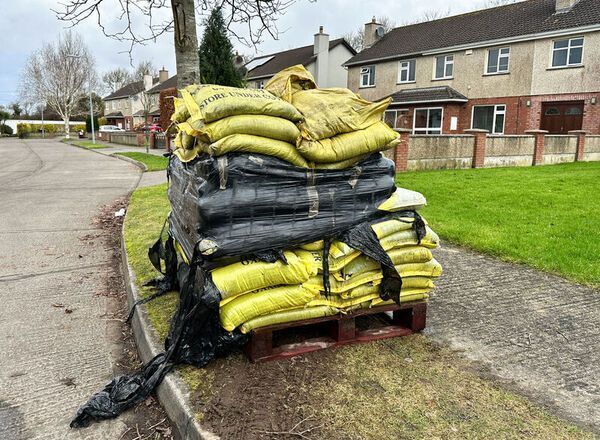On a recent Sunday, while speaking to the Vatican's ambassador to the United States, Archbishop Pietro Sambi, we discussed the importance of peace in the Middle East. Archbishop Sambi has considerable experience as a diplomat, so it was good to listen to him talk about the Holy See's views on various issues of importance to the United States.
He has a great understanding of the historic problems in the Middle East.
As it happened, I was the U.S. ambassador to the Vatican when formal diplomatic relations were finally established between Israel and the Holy See, the term used for the actual government of the Catholic Church.
This historic agreement was strongly backed by the president and I had the role of expressing our government's views and interests. I would see at first hand the enormous credibility that Pope John Paul II had with people in that troubled region of the world. The church's interest was not political, economic or geographic, but moral, so the pope's voice and opinion was taken seriously.
On a recent Thursday, a group of friends were having lunch in Braintree when news broke on television that President Obama had just announced something very significant from the White House. In an obvious effort to head off the Israeli prime minister's visit to the U.S. and major speech to the U.S. Congress, President Obama urged Israel to start negotiations for peace on the basis of 1967 Palestine-Israel borders. This is a central issue in the ongoing conflict in the Middle East. Without doubt, the border dispute has been the biggest reason for the hatred and division between Arabs and the Jewish people.
My luncheon friends, Mayor Joe Sullivan of Braintree, former Boston Police Deputy Superintendent Bob Faherty, businessman Gerry Ridge, and I, talked about the important role of diplomacy. I brought up the critical role that ordinary Irish Americans had in pressuring Washington politicians to play a meaningful role in the peace and justice movement in Northern Ireland. These people changed history, they exercised "media diplomacy," thus keeping the issues alive in the local press.
But as I often say: "all diplomacy is personal." When I was first elected mayor of Boston, the biggest problem in the city I had to deal with was race relations. School busing had torn Boston apart.
One event that we talked about at lunch changed a Dorchester neighborhood dramatically. Wainwright Park separated the all white section from the all black area. The park had a basketball court, a baseball field and a playground. One summer night, after the black kids got through playing basketball, the white kids pulled the rims down in the two courts, all but ending basketball for at least a couple of weeks, if not the summer.
The black kids were angry and retaliated by tearing up the baseball field. All the equipment in the playground was destroyed, so nobody could enjoy the park in this poor neighborhood.
Rock throwing, drinking, fires and loud music disturbed the peace. The racial climate was getting worse. Fights and beatings were common. Everyone had just about given up on the neighborhood. We pulled together a couple of meetings at a Catholic Church and another at a Protestant Church, but all you heard from both sides was blame.
The neighborhood was pretty much doomed. I met with Fr. Ryan and Fr. Devine from St. Mark's Church and Pastor Peterson from the Lutheran Church. I brought along a couple of police officers and invited a few neighbors from the white area and a few from the black area. I also invited a couple of black and white teenagers. The first hour of the meeting was racially charged to put it politely. We ordered pizza and soda and settled in for a long discussion about everything that was wrong with the neighborhood.
Well, that meeting turned out to be the start of the Police Athletic League in Boston. My police driver, Detective John Swirbalius, followed up the meeting with people we needed to fix up the entire park, establish a mixed racial committee, and even recruited businessmen to help run the program. Businessman Gerry Ridge was a perfect choice to become president of PAL.
We re-opened Wainwright Park on a beautiful Saturday morning in the middle of that summer and with a hoops game pitting "The Mayor's All Stars" and a team made up of neighborhood all stars. Hundreds of people looked on with doubt and anticipation. Hot dogs and hamburgers would be cooked and served by police officers on their day off, with music and games for everyone.
It turned out a great day; but would it last? What would happen when the mayor, cops and clergy left?
We didn't have to wait very long to find out how long the unity in the neighborhood would last. While I was the captain of the mayoral all stars I was far from being the star player. My center was Boston Celtic great Dave Cowens.
Jo Jo White, another Celtic great, was my back court teammate. We faced off against a team of pretty good players, both black and white young men. They were determined to show us outsiders how basketball was played in their neighborhood.
We were winning by three points with only a couple of minutes to play when Dave Cowens took off and crashed the boards for a rebound. He would be cheered at the Boston Garden for knocking Bob Lanier or Kareem Abdul Jabbar down, but when he hit one of the tall skinny white kids with an elbow to the jaw, two of the black kids on the court went after him. The black and white kids had found an enemy other than ach other. Wainwright Park found peace after that.
When I went back to the park at the end of summer, both black and white kids were playing together in a game of street hockey in a rink that the city and PAL had built.
Bottom line? I didn't learn how to become a diplomat at the State Department, or on the job at the Vatican. I learned in a place called Wainwright Park in Dorchester.








